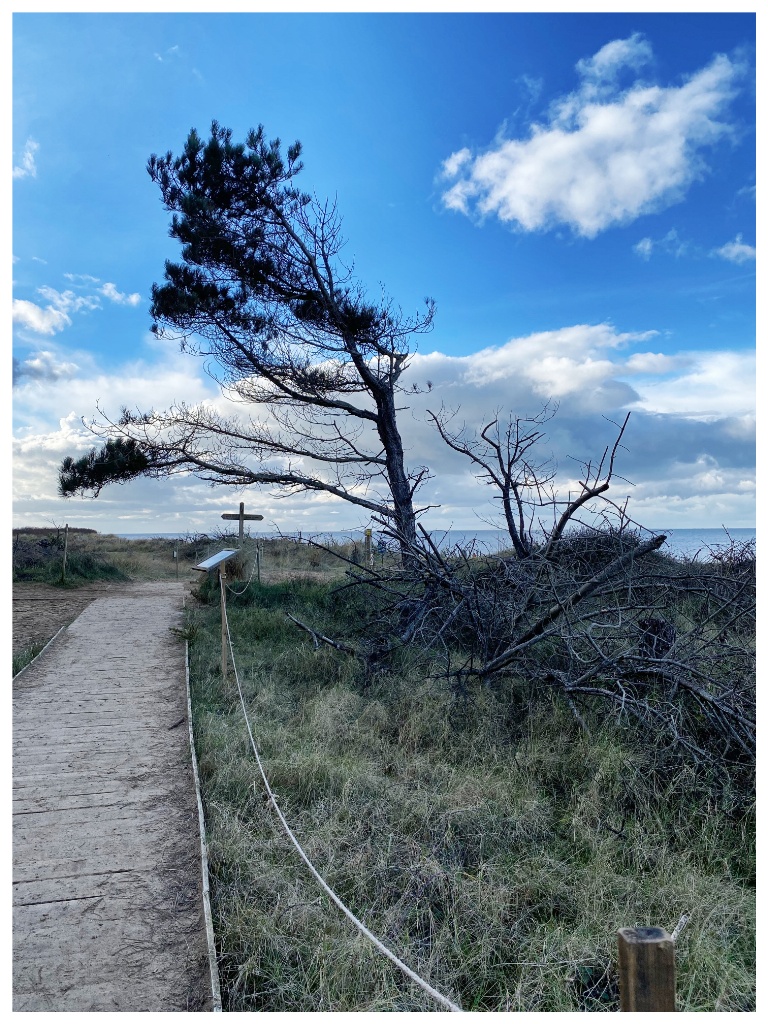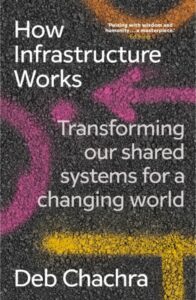Guess which way the wind blows

North Norfolk
Quote of the Day
“ Critical thinking without hope is cynicism, but hope without critical thinking is naïvete.”
- Maria Popova
Reminds me of Gramsci’s adage — that what we need is “pessimism of the intellect and optimism of the will”. Except that I would substitute ‘realism’ for ‘pessimism’.
Musical alternative to the morning’s radio news
Bruce Springsteen | No Surrender (Live at Meadowlands Arena, E. Rutherford, NJ – August 1984)
I love this recording of the song.
Long Read of the Day
Viewing the Ob-scene: On Jonathan Glazer’s “The Zone of Interest”
I’ve been putting off going to see the film, largely because I dread the prospect. But having read David Hering’s striking essay about it by in The LA Review of Books I have to see it.
Here’s how Hering’s piece opens.
A MAN IS being murdered outside a child’s window. A prisoner of Auschwitz, he was caught fighting with another captive. As punishment, he’s being drowned in a river. We can’t see the incident, but the child can. He moves over to the window and looks out beyond our field of vision. Almost immediately, he withdraws back into the room, and utters a gnomic phrase: “Don’t do that again.”
To viewers watching this scene, it’s unclear to whom this is directed: to the prisoners, to the toy soldiers with which the boy has been playing, or to himself. If it’s the prisoners, he has inculcated the values of the murderers who live in his house; he is the son of Rudolf Höss, the commandant of Auschwitz, whose home lies on the other side of the camp wall. If it’s the toys, his revulsion at the murder has been redirected to miniature avatars of those outside his window. Most likely, he is talking to himself, and the thing he must not do again is look at what’s happening next door. Better to stay indoors, on the other side of the wall, and withdraw into the make-believe narrative of his toys. The window, as so often occurs in The Zone of Interest (2023), the film from which this scene is taken, is a blinding white square covered by a gauzy curtain. Something awful we cannot see is happening, just out of sight.
The Zone of Interest focuses on the everyday lives of the Höss family. We never see what happens inside Auschwitz, which appears only as a backdrop. Its towers loom above the concrete garden wall, the smoke from its chimneys spreads upwards into the sky, and human bones are washed downstream into the nearby river. We hear sounds of gunfire, screams, barked orders, and machinery, all of which play out over the Höss family’s domestic lives. Each day, Rudolf Höss leaves his house, murders countless prisoners, and comes home to read his children a bedtime story…
It’s a really compelling essay. Criticism at its best.
EU finally sinks its regulatory teeth into tech giants
Yesterday’s Observer column
Last Wednesday was a landmark moment for the tech industry, or at any rate for that part of it that aspires to do business in the EU. It was the day when six of the biggest companies in the world had to start complying with the EU’s Digital Markets Act (DMA) – the most sweeping law thus far aimed at regulating their activities in one of the world’s biggest marketplaces.
The act – which aims to promote fair competition and limit the market power of the largest tech companies (“gatekeepers”) – has been long in gestation, and was vigorously opposed by them from the outset. So the fact that it emerged from the Brussels lawmaking process with some of its teeth still intact is itself a small miracle. But what is even more delicious is to see these behemoths grudgingly announcing how they are going to comply with what they see as an infuriating infringement of their freedom to do whatever they please.
Books, etc.

Córy Doctorow’s review alerted me to this.
Engineering professor and materials scientist Deb Chachra’s new book How Infrastructure Works is a hopeful, lyrical – even beautiful – hymn to the systems of mutual aid we embed in our material world, from sewers to roads to the power grid. It’s a book that will make you see the world in a different way – forever:
Chachra structures the book as a kind of travelogue, in which she visits power plants, sewers, water treatment plants and other “charismatic megaprojects,” connecting these to science, history, and her own memoir. In so doing, she doesn’t merely surface the normally invisible stuff that sustains us all, but also surfaces its normally invisible meaning…
Infrastructure underpins our world, and yet we pay little attention to it. And — at least in the case of the UK’s public water infrastructure — we turn it over to private-equity and other monopolistic rent-seekers who let sewage pollute rivers while they pay grotesque dividends to directors
My commonplace booklet
How Pseudo-Intellectualism Ruined Journalism
William Deresiewicz provides an original lens through which to view the decay of mainstream American journalism.
This Blog is also available as an email three days a week. If you think that might suit you better, why not subscribe? One email on Mondays, Wednesdays and Fridays delivered to your inbox at 6am UK time. It’s free, and you can always unsubscribe if you conclude your inbox is full enough already!
